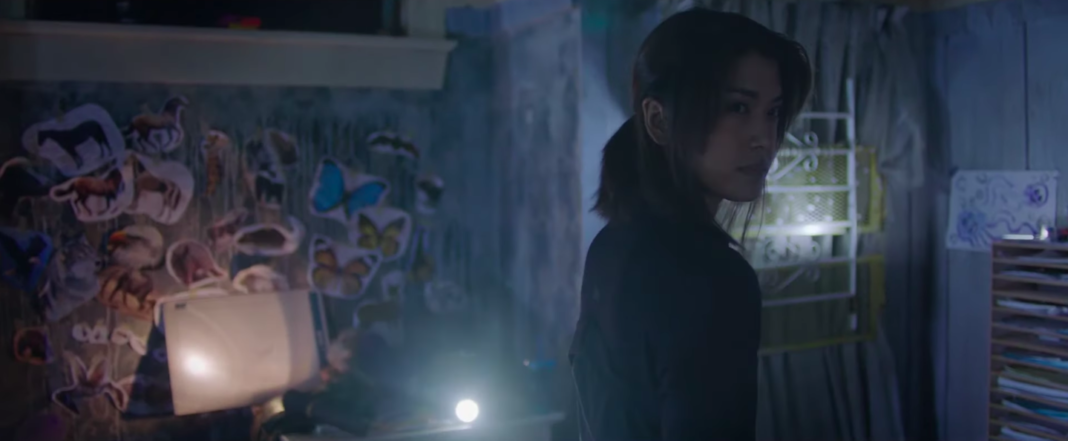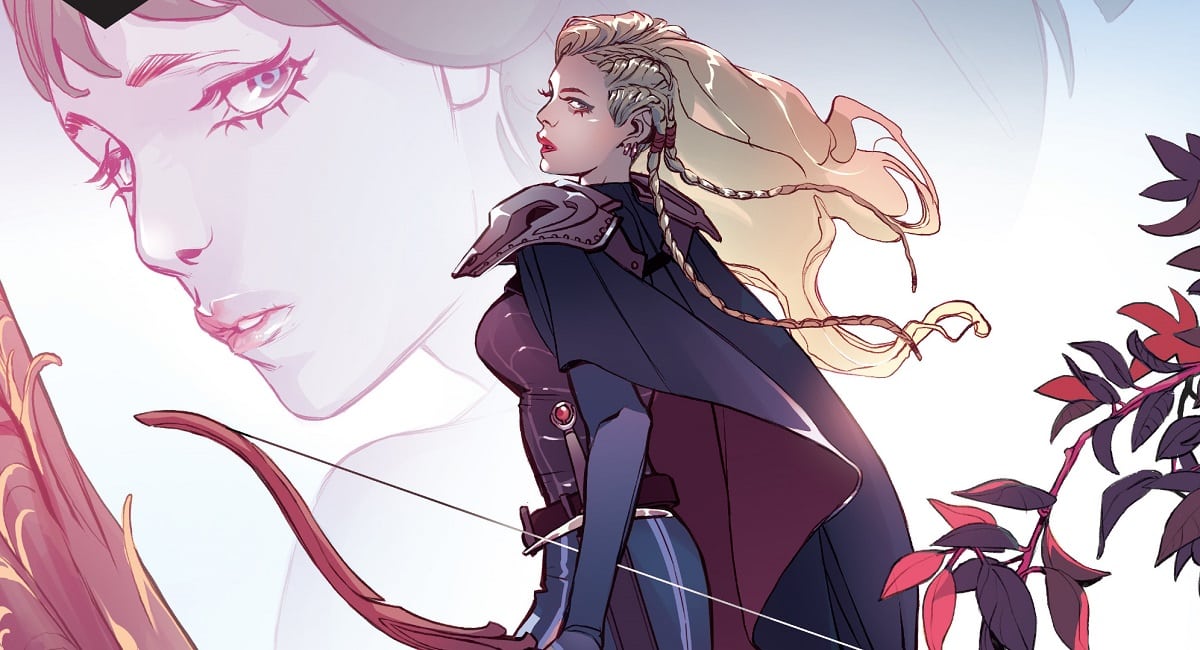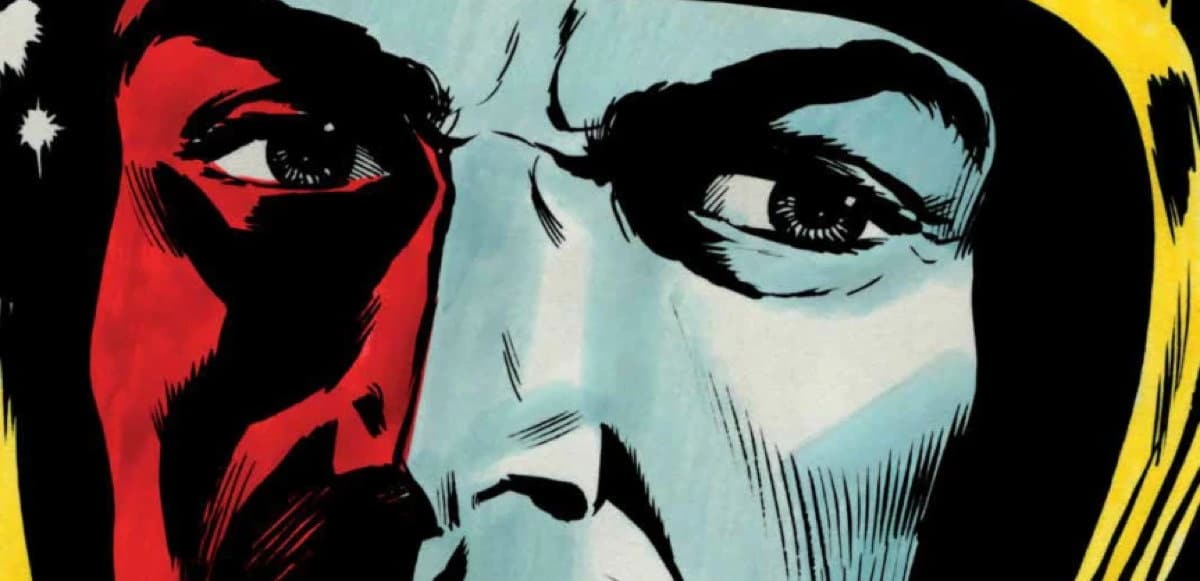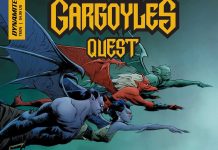By Carolyn Hinds
Wanting to experience life beyond the one her father (Emile Hirsch) has created for her in secrecy and seclusion, 7 year-old Chloe (Lexy Kolker) ventures into a world where those who don’t fit into society’s idea of being “normal” are in danger of being held captive or worse. Starring Grace Park (A Million Little Things, Battle Star Galactica), Freaks is a film that asks the audience to think about what we would do if we were in Chloe’s and her father’s positions, and what we’re willing to do to protect the people we love.
Recently The Beat had the opportunity to speak with Grace Park about her character, Agent Ray, and what audiences can learn from the film.
SPOILER ALERT! Some plot points are discussed in this interview. If you haven’t yet seen Freaks, proceed with caution!
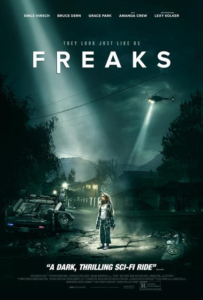
Grace Park: Oh Really? Why was that?
Hinds: I’m not sure exactly what I expected, but just from looking at the poster, I think I thought it would have a more X-Files tone to it, but it also reminded me of a from back in the day called The Pretender, a Canadian sci-fi show. Your character Agent Ray is very commanding, and she was multi-dimensional because I wasn’t sure what she was going to be. I hoped she would turn out to be a good guy but then she proved she wasn’t.
Park: [laughs] Are you sure about that?
Hinds: I guess it depends on your perspective. For me I was hoping it would be revealed that she was actually working on the side of — as you called them — the “Abnormals.” Perhaps undercover or with an underground movement.
Park: [laughs] I know. It was an interesting character because I also during shooting was asking [writers and directors] Adam B. Stein and Zach Lipovsky, “Where are we going with her? What do you want her to be? Like Who’s…which side…how much do we reveal of what you want people to sort of wonder about her and what’s really going on for her?” I do think you hold out hope for that, because she is representing the government and authority in a lot of ways, but at the same time you look some of the governments around the world and some of them take their power too far. But I think that most of the time they might feel justified in what they are doing for either control or what they call peace…I don’t know if it’s actually peace, but…
[The film] gets you to think, or at least feel about who we have in power and the decisions that they make. There’s this opposition of the people versus the authority, when we talk about Agent Ray versus the rest of the citizens, and also the media coming in. What are we trying to portray? What’s the truth? And you hear what Agent Ray is saying and then, you know, you make your decisions on that, but sometimes we still don’t even know what’s really going on for them. I think it’s quite interesting, because in a moment people can reflect a certain way, and it’s easy to project, like, “Oh, you know, that’s not who I thought it was. This is what’s really going on for them.” But at the same time, we as the audience are projecting onto them as well, so there’s so many layers to it and it’s quite interesting.
Hinds: For me it was a sci-fi, but there’s also a lot of politics involved in the film, and your character, I guess you would say is the figure head for the political climate for what’s going on in that world at the moment. We hear what she’s saying, and there’s two things. On one hand, you can understand what she’s talking about regarding security and protecting people, but on the other hand it’s about, who does the government see as people? The “normal” citizens were calling them “Freaks,” but Ray during an interview said she didn’t like calling them that, she preferred the term “Abnormals.”
About Ray, I thought it was interesting they used a female character in this position because normally in films and shows, this type of character is usually male.
Park: Oh, interesting, I never thought about that.
Hinds: That’s one of the things that I found interesting, because it’s always men in their black suits, white shirts and black ties representing these kinds of positions. But having a woman in this position was also interesting because of Chloe. She’s a young girl who longs for a mother and maternal substitute and I was hoping Agent Ray would be this for her.
Park: That’s great. I Didn’t really think about it from that perspective, but it’s true. I do think that because maybe they perhaps played that because she was female, it does seem like she was more understanding or possibly yielding. You know, less power hungry…so maybe it drew unconsciously on that side of people’s psyche. And yes, when someone in power who seems threatening then says, “No, let’s humanize them. We’re gonna give them a different title, we’re not going to [degrade] them as much.”
It does help with the masses to sort of change their perspective what we call other people, because the more you make them separate than you, it’s easier to take actions that you would not want done unto yourself, and it’s easier to objectify and the more you make them human, then it gets more challenging to do that because you have more empathy. So, the more similar they look like you, or you recognise traits in them that are either like people you know or your best friend…it humanizes people and then they will kind of put themselves into that. So, Agent Ray does start on that, but she has her own agenda. Some of it you know and some of it you don’t know.
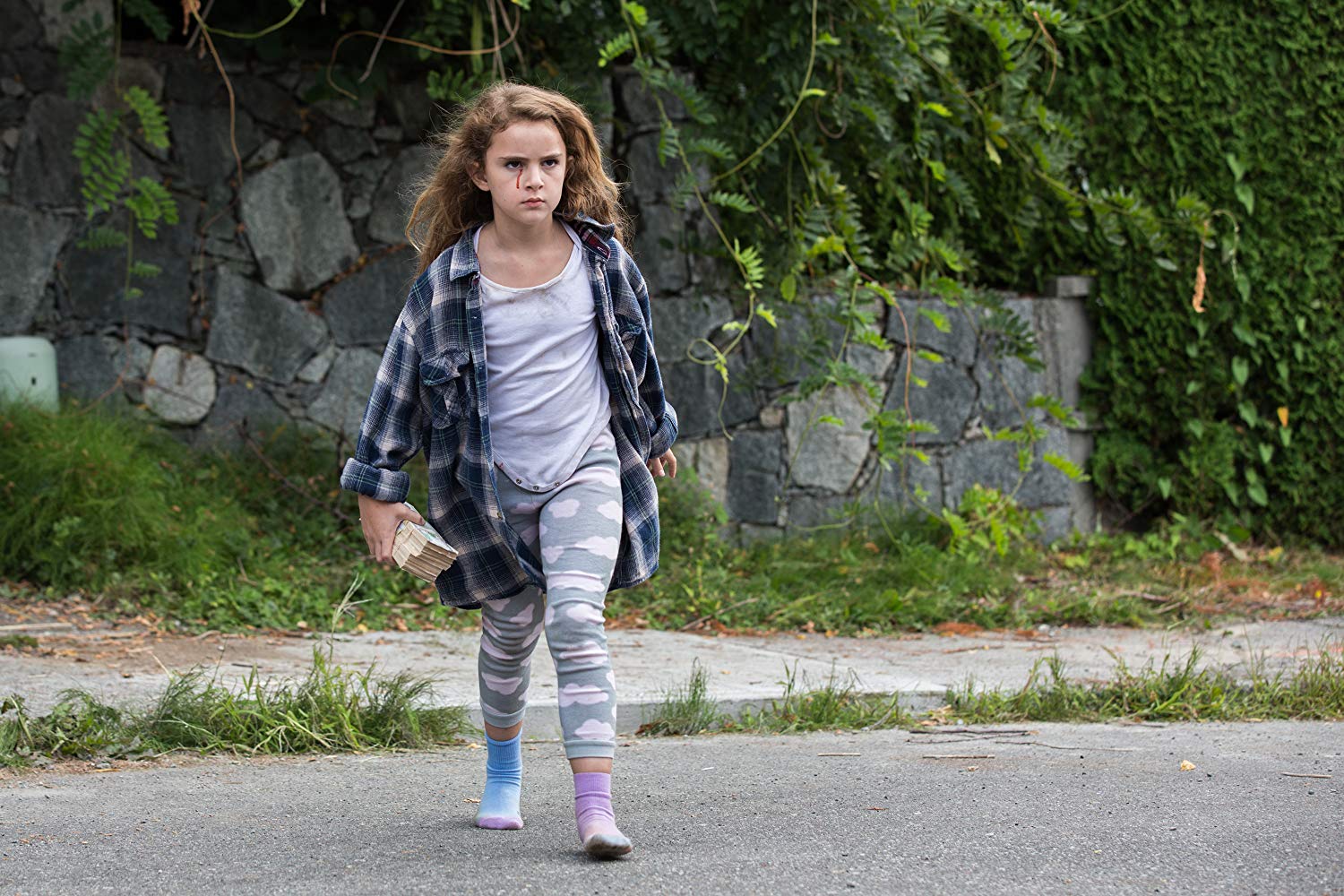
Hinds: Yes, even till the very end you don’t really know what her ultimate goal was. The moment where she went into the house, that’s the one where you’re hoping that maybe she really does have a connection to them and is possibly working with them underground like a resistance, but I think it’s great that she’s keeps you wondering.
Now, you’re known for playing one of the most iconic characters in a sci-fi series, the Cylon, Lt. Sharon “Boomer” Valerii.
Park: Yes.
Hinds: I kind of drew a comparison where they – the Cylons – integrated into society, and you couldn’t tell whether or not if they were Cylons unless something happened. You played that kind of character, and now you’re in a film where there is a similarity between the Cylons and “Abnormals,” and I wanted to know if you made that connection, and if so, if it influenced how you played your character or saw the film as a viewer.
Park: No, I don’t think I… I didn’t make that connection and didn’t even make the connection that they were both sci-fi either. [laughs] I think for me, I guess I go more into the role versus…as a journalist, you’re probably looking at the larger picture and looking at people’s different roles and piecing things together, and that’s what’s always interesting about reading these articles is that then you get to have a different perspective. You’re like, “Oh, I never saw it that way.”
No, I didn’t see it as such, but I think when you play those roles, it informs you in life and because you have to take on a different perspective when you’re telling a story, sometimes for years and you’re put into these situations… yes, they’re not real, but you do have to use your own body, and when you have emotions it’s like there’s only so much you can fake anything and that’s not really my goal anyway. And so it does kind of inform you and it sort of stays with you whether you consciously recognize it or not. I didn’t see this as the flip side in a way of the same coin, but yeah, that’s an interesting perspective I didn’t see.
Hinds: So, for this particular character of Agent Ray, what was it that drew you to her and saying, “Ok, I want to play her”?
Park: It wasn’t actually the character. For me, it was the script. It was so good. I was at the time exhausted and I had already started writing an email to my agent to say that I wasn’t going to do it. “Look I read the script…” and I realized I hadn’t read any of it yet and I can’t actually say that, so I have to read some of it. Once I started reading it, I got to page four and was like, “Oh no,” ’cause it was so good.
I was like, “Oh my gosh, I have to do this, it is so good.” And you know, I could’ve been like background in it. I could’ve been — I don’t know, a garbage sweeper — and it wouldn’t have mattered. It was like, “Yes, of course I’m doing this film, it’s fantastic.” They were able to create such a story right from the beginning of this little girl who ‘s been trapped inside her house by her father because he’s trying to protect her and at the same time coaching her to be normal, which immediately gets your Spidey senses up thinking, “Wait, what’s going on?”
Everything seems OK. He seems like the weirdo and then as the thing unfolds, you wonder what are you supposed to believe, and because the film is from a child’s perspective, it sort of limited the information you’re getting you know. If you can imagine being a child in the world, it’s like, you’re even at a certain height. You’re lower than the adults, so it changes everything of how you perceive the world. I’ve heard — and I don’t know if this is true — but children’s heads are smaller and their eyes are closer together so… and as I said I haven’t done my research, but their eyes being closer makes the world seem bigger. A lot of time people go back to their school [as adults] they’re like, “Oh it’s so small, the walls are so close to each other,” and I don’t know if that’s a part of it, but it could be.
It’s a wonderful way to tell a story, to be able to create this sense of not knowing and trying to know more without you know, using some very strong storytelling devices of “Ooo, we’re gonna have these dead bodies at the beginning like it’s a mystery we’re gonna have to solve.” It’s a very clever way I find of being able to try and figure it out, but not knowing how.
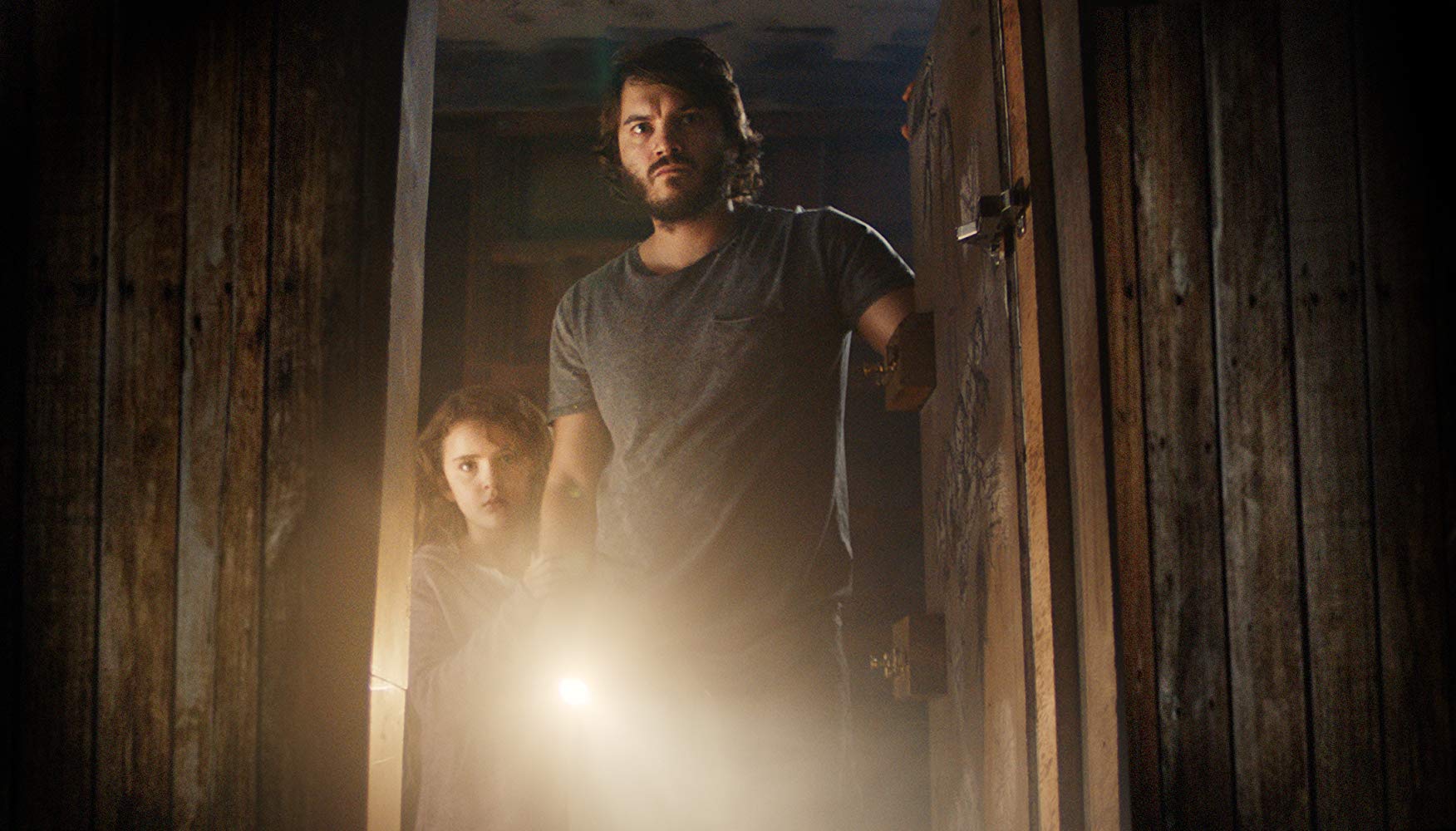
Hinds: I agree. The thing that had me with Chloe, as you said, is that the film is almost completely from her perspective, and it made me very uneasy because I didn’t know what was happening. “Is he paranoid? Is everyone else crazy and he’s the normal one and seeing things clearly?”
Park: I know.
Hinds: Yeah, and I didn’t trust Chloe. Honestly, when it comes to kids in sci-fi or horror, I always suspect them. Lexy Kolker did an amazing job where she was very vulnerable and endearing, but then she has this look in her eyes where she switches and changes her emotions very quickly, and I believed Chloe could kill someone in an instant without an ounce of remorse. [laughs]
Park: [laughs] Oh, children. Small human beings.
Hinds: Yup, but that’s one of the things about the film that keeps your attention. You can’t really trust anyone because you don’t really know what their true objective is. You don’t know what the world is, and the film keeps the suspense right up until the end.
Park: Yeah, it’s a story that gets you to think twice and maybe 10 times harder about the police states that can be enforced under the directives of safety, or control, or peace for the public. But at the same time, when you start using fear and separation as your tactics, it — I guess — fires up people’s own fear and excitement, and then they start acting from a different place. Even if you are innocent, if someone starts suspecting you, if you’re afraid you start acting in a way that people could perceive as guilty.
This could just even be a story about what it’s like to cross a border…are you going to tell them every single thing you got, or are you going to try to get away with something, you know? And everyone kind of has that option. It’s interesting, because we want people to make the right decision all of the time, yet they don’t, and why? So here the story’s about survival and people. If they are indeed different and they can’t help it, what are we going to do about that? Are we going to start separating people out and creating more fear and that’s supposedly a solution?
You have to look at the societies and peoples around the world that do that, and what is really their motivation, and you have to be a critical thinker. You can’t just think, “Oh, it’s really for my own safety.” Hmm, time to wake up, Dorothy. Time to think for yourself.
Freaks opens in theaters nationwide on September 13, 2019. It was the Official Selection at Toronto International Film Festival, a winner of the Jury Prize at Brussels International Fantastic Film Festival, a winner of the Emerging Filmmaker Award at the Vancouver International Fantastic Film Festival and a winner of the Audience Award for Best Film at the Paris International Fantastic Film Festival.
See Grace Park, Emile Hirsch, and Lexy Kolker in the Freaks trailer below.


